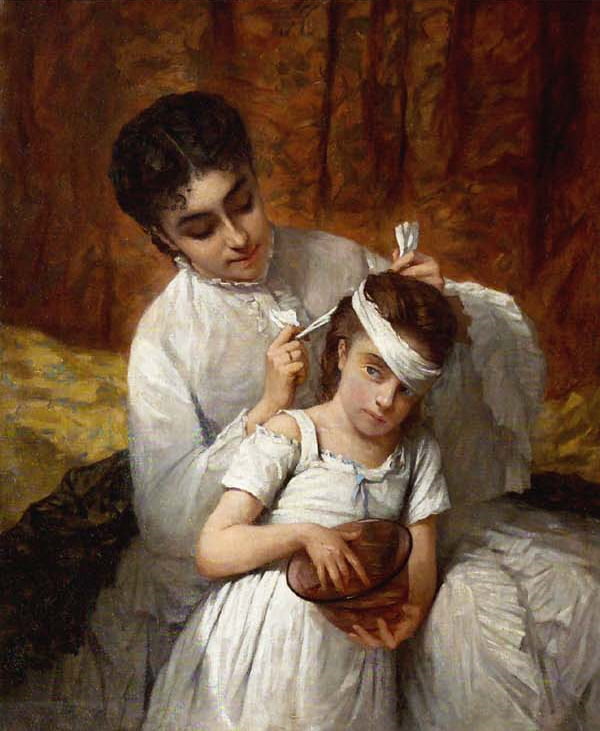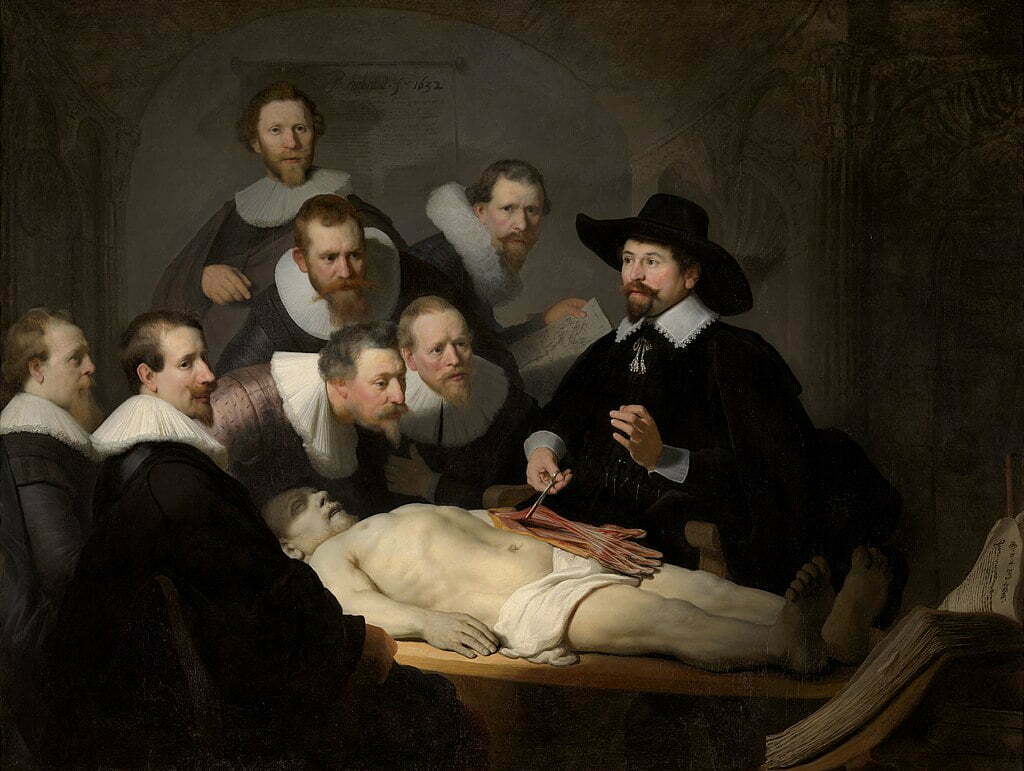Heal (Wisdom)

Check
The DC and effect depend on the task you attempt.
| Task Heal | DC |
| First aid | 15 |
| Long-term care | 15 |
| Treat wound from caltrop, spike growth, or spike stones | 15 |
| Treat poison | Poison’s save DC |
| Treat disease | Disease’s save DC |
First Aid
You usually use first aid to save a dying character. If a character has negative hit points and is losing hit points (at the rate of 1 per round, 1 per hour, or 1 per day), you can make him or her stable. A stable character regains no hit points but stops
losing them.
Long-Term Care
Providing long-term care means treating a wounded person for a day or more. If your Heal check is successful, the patient recovers hit points or ability score points (lost to ability damage) at twice the normal rate: 2 hit points per level for a full 8 hours of rest in a day, or 4 hit points per level for each full day of complete rest; 2 ability score points for a full 8 hours of rest in a day, or 4 ability score points for each full day of complete rest.
You can tend as many as six patients at a time. You need a few items and supplies (bandages, salves, and so on) that are easy to come by in settled lands. Giving long-term care counts as light activity for the healer. You cannot give long-term care to yourself.
Treat Wound from Caltrop, spike growth, or spike stones: A creature wounded by stepping on a caltrop moves at one-half normal speed. A successful Heal check removes this movement penalty.
A creature wounded by a spike growth or spike stones spell must succeed on a Reflex save or take injuries that reduce his speed by one-third. Another character can remove this penalty by taking 10 minutes to dress the victim’s injuries and succeeding on a Heal check against the spell’s save DC.
Treat Poison
To treat poison means to tend a single character who has been poisoned and who is going to take more damage from the poison (or suffer some other effect). Every time the poisoned character makes a saving throw against the poison, you make a Heal check. The poisoned character uses your check result or his or her saving throw, whichever is higher.
Treat Disease
To treat a disease means to tend a single diseased character. Every time he or she makes a saving throw against disease effects, you make a Heal check. The diseased character uses your check result or his or her saving throw, whichever is higher.
Action: Providing first aid, treating a wound, or treating poison is a standard action. Treating a disease or tending a creature wounded by a spike growth or spike stones spell takes 10 minutes of work. Providing long-term care requires 8 hours of light activity.
Try Again
Varies. Generally speaking, you can’t try a Heal check again without proof of the original check’s failure. You can always retry a check to provide first aid, assuming the target of the previous attempt is still alive.
Special: A character with the Self-Sufficient feat gets a +2 bonus on Heal checks.
A healer’s kit gives you a +2 circumstance bonus on Heal checks.

Crime and Punishment
Author Keith Baker
Series Campaign Style
Publisher Atlas Games
Publish date 2003
Heal represents knowledge of medicine and the humanoid body. By combining medical knowledge with alchemical techniques, it is possible to gain a significant amount of information from a corpse without the use of magic. Heal forms the basis of forensic pathology, but Craft (alchemy) allows you to test the characteristics of blood and is required for certain advanced actions.
Check: The following table indicates the type of information that can be gained with a Heal check, along with the DC of the check and the ranks in Craft (alchemy) that you must possess (if any). An alchemist and a healer can team up in order to perform a task.
Performing an autopsy requires approximately three hours. At the end of this time, you can make two checks (typically cause of death and examining the injury that caused death). Each additional check takes an additional thirty minutes to perform.
| Nature of Craft | (Alchemy) Information | DC Ranks |
| Cause of Death | 10 | None |
| Examine Injury | 10 | None |
| Presence of Foreign Substances | 15 | 4 ranks |
| Nature of Foreign Substances | 25 | 8 ranks |
| Time of Death | 20 | 0 or 8 ranks |
Cause of Death can be useful when you want to know if the crushing damage came after the victim was poisoned. This only provides general information: “She died as a result of decapitation” or “She appears to have died of natural causes.” To obtain more specific details, you must make an additional check to examine the injury or determine the nature of foreign substances.
Examine Injury allows you to obtain information about a specific wound. If you make the check, you determine the basic cause of the injury (a narrow blade, a small blunt object, teeth). If you make the check by at least five points, you gain specific details about the weapon that caused the injury (a double edged Dagger with a six-inch blade). If you make the check by ten or more points, you gain information about the manner in which the wound was inflicted (the attacker was left handed, about six feet tall, and probably grabbed her from behind).
Presence of Foreign Substances reveals whether the victim had drugs, poison, or high levels of Alcohol in his system when he died. As with a cause of death check, this information is not specific; it simply determines that something unnatural was present at the time of death.
Nature of Foreign Substances allows you to determine the specific nature of any substance you have identified. You must discover the presence of foreign substances before you can attempt to determine their nature.
Time of Death reveals when the victim was killed. This is an imprecise science at best. If the user does not possess the prerequisite levels of Craft (alchemy), time of death can only be determined to within 4d6 hours. With access to alchemy, the time can be pinpointed to within 1d6 hours.
Retry: You cannot retry a failed roll. If you miss the check by ten or more points you may come to a false conclusion, otherwise you will just be unable to obtain any useful information.
Special: Time is the enemy of the pathologist. Every twelve hours that passes from the point of death adds 2 to the DC of any autopsy check. In a swampy or tropical environment, this penalty is doubled; in an especially dry environment it is halved. The spell gentle repose will preserve a body in its current condition for the duration of the spell.
Certain poisons and drugs may be harder to detect than others. The GM should consider the poisons that exist within the gameworld; those that are difficult to trace could increase the DC of checks made to determine cause of death, presence of foreign substances, and nature of foreign substances by up to 5 points.
During the course of an autopsy, you may also make a Search check to notice any unusual details about the corpse. There may not be any; but perhaps you will notice a few threads of cloth caught under the victims fingernails, or a small tattoo that will prove to be relevant later. It is up to the GM to determine whether there are any facts to be discovered, and if so, what the DC of the check should be.
Torture
![De Raphaël Collin - [1], Dominio público, https://commons.wikimedia.org/w/index.php?curid=2818497](https://spiralworlds.com/wp-content/uploads/2021/04/Louis_Joseph_Raphael_Collin_-_Femme_crucifiee.jpg)
Crime and Punishment
Author Keith Baker
Series Campaign Style
Publisher Atlas Games
Publish date 2003
The willful torture of another living creature is a heinous act. But that hasn’t stopped it from being performed throughout history, to extract information or enforce cooperation. Evil-aligned governments may use torture as a way to motivate suspects to confess. You may not stoop so low as to engage in torture, but should you or your friends fall into evil hands, it’s important to understand the horrors that may lie in wait. It’s possible to torture someone without using any skill whatsoever. Anyone can, say, start to cut off your toes or pull out your teeth. But too much pain will simply put a victim into shock, or cause him to start babbling whatever he believes his torturer wants to hear. The true art of the torturer is to keep the victim alive and conscious, and to motivate him to speak clearly and honestly – to tell the truth because he is more afraid of what will happen if he is caught in a lie than he is of what has already occurred. There are two basic types of torture: psychological and physical. Psychological torture is based on Intimidation, while physical torture – strangely enough – uses Heal.
If you understand the body, you know how to maximize pain while inflicting minimal damage. Very few people have the strength to resist judicious physical torment.
- Check: After 30 minutes, make a Heal check opposed by the victim’s Fortitude save. If you are successful, the victim will provide you with the information you have asked for, or perform a simple action (such as signing a confession). If the victim resists, he may say nothing or choose to pretend to be broken and lie to you. The later requires a successful Bluff check, opposed by your Sense Motive skill.
- Retry: You may retry a failed attempt (assuming that you realize that you failed). However, unless you have access to cure spells, you will eventually have to stop or your victim will pass out or die. You cannot take 10 or 20 on a torture check.
- Special: Regardless of success or failure, the victim will suffer 1d4 points of damage and 1d4 points of nonlethal damage from the torture.

 Buy me a coffee
Buy me a coffee